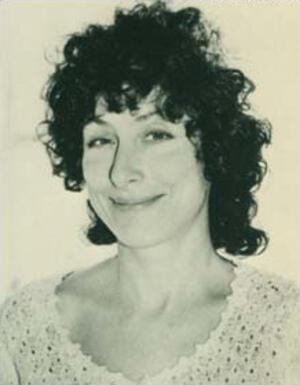Ellen Willis
Through brilliant, often polemical, writings, the feminist and educator Ellen Willis, who has died of lung cancer aged 64, was central to the cultural debates and political controversies of the United States over nearly four decades. Intellectually fearless, Willis was professor of journalism at New York University (NYU) from 1990. A theorist of feminism, she analysed abortion, politics, sexuality, marriage and the family, and the relationship of feminism to popular culture, psychoanalysis, and cultural radicalism. Indeed, she was one of the first serious American critics to understand the importance of popular culture.
She called herself a "left libertarian," and polemicised against US military involvement in Vietnam and Iraq, and took on the religious radicalism of the right and the social conservatism of the left. "There is a neat irony in the fact that leftists are now romanticising the family and blaming capitalism for its collapse, while 10 years ago they were trashing the family and blaming capitalism for its persistence," she wrote in 1981.
She scrutinised rock, television, films, and journalism and championed the counter-culture. "Life without pleasure—without spontaneity and playfulness, sexuality and sensuality, aesthetic experience, surprise, excitement, ecstasy—is a kind of death," she wrote in 1990. "People deprived of pleasure don't get kinder and gentler, but meaner and nastier."
At the end of the 1960s she became the first pop music critic for the New Yorker, and was an editor and columnist for the New York weekly the Village Voice. She was also for a time an editor on the feminist magazine Ms.
As the cultural upheaval of the 1960s and 1970s gave way to cultural austerity and a retreat from radicalism, her work, like America itself, expressed a new mood. In the final decade of her life, in meditative pieces on public obsessions such as the OJ Simpson trial, the case of Bill Clinton and Monica Lewinsky, and Susan Sontag's drift from collective action to individual moral witness, Willis reflected on the larger meanings to American culture of the resurgence of conservative social values. Yet, despite her grim assessment, she never lost her optimistic belief in the transformative powers of social movements: "Individuals bearing witness do not change history; only movements that understand their social world can do that," she wrote last year.
Born in New York City, Willis was the daughter of a New York City police lieutenant. She was educated at New York and Chicago public schools and in 1962 graduated in English literature from Barnard College, then the women's college linked to Columbia University in New York City. She later studied comparative literature at the University of California, Berkeley.
It was during the early days of the US women's liberation movement in 1969, that she, with the then 24-year-old Shulamith Firestone, author of the feminist classic, The Dialectic of Sex (1970), co-founded Redstockings. This was the radical women's liberation group that pioneered consciousness raising (CR) and organised the first public speak-outs on abortion, then illegal in the US.
The next year she started a women's liberation group in Colorado, while working on an anti-Vietnam War project near a military base. In 1975, after most of the early CR groups, including Redstockings, had disbanded in the wake of the burnout and backlash that followed the ebbing of the 1960s radical tide, she got together with some feminist friends to form a new CR group, of which I was lucky enough to be a member. That group lasted for 12 years, analysing attacks on feminism as they emerged.
Throughout the 1970s she worked to halt the erosion of abortion rights, both through her writing and by joining with others to form several reproductive rights resistance groups. These included the street theatre group No More Nice Girls, committed to abortion rights and sexual freedom for women.
In the 1980s Willis articulated a position that she defined "pro-sex feminism". She was among the planners of a 1982 conference on the politics of sexuality, held at Barnard College, which brought to national attention the rift in the US women's movement between proponents of women's sexual freedom and conservative feminists who wanted to censor pornography and oppose certain sexual practices. In response, Willis helped found the Feminist Anti-Censorship Taskforce (Fact) to counter the puritanism she deplored.
In 1995, as NYU's professor of journalism, she founded the US's only cultural reporting and criticism programme, within the department's graduate school. Willis wanted students to emphasise the "why?" of events as well as the traditional "what?", and to approach culture, as she did, from a critical perspective.
In 2000 she organised veteran radical feminists into what became the online discussion group, History in Action, with members on several continents. She remained an activist, demonstrating against the Bush administration's policies with the group Take Back the Future, and was part of the Feminist Futures study group.
Willis brought lucidity and style to the most controversial and baffling cultural issues—her thought was a beacon of clarity. For those of us fortunate enough to have been her comrades, anticipating her insights was part of what kept us returning to meetings month after month, year after year.
Her essays, originally published in journals like the New Yorker, The Nation, Dissent, Social Text, the New York Times, and the Village Voice, were collected in Beginning to See the Light (1981); No More Nice Girls (1992); and Don't Think—Smile! Notes on a Decade of Denial (1999).
Willis's first marriage ended in divorce. A shining presence among us, she is survived by her husband, Stanley Aronowitz, professor of sociology; their daughter, Nona Willis-Aronowitz, who is also a writer; a brother, sister, four step-children and two step-grandchildren.



